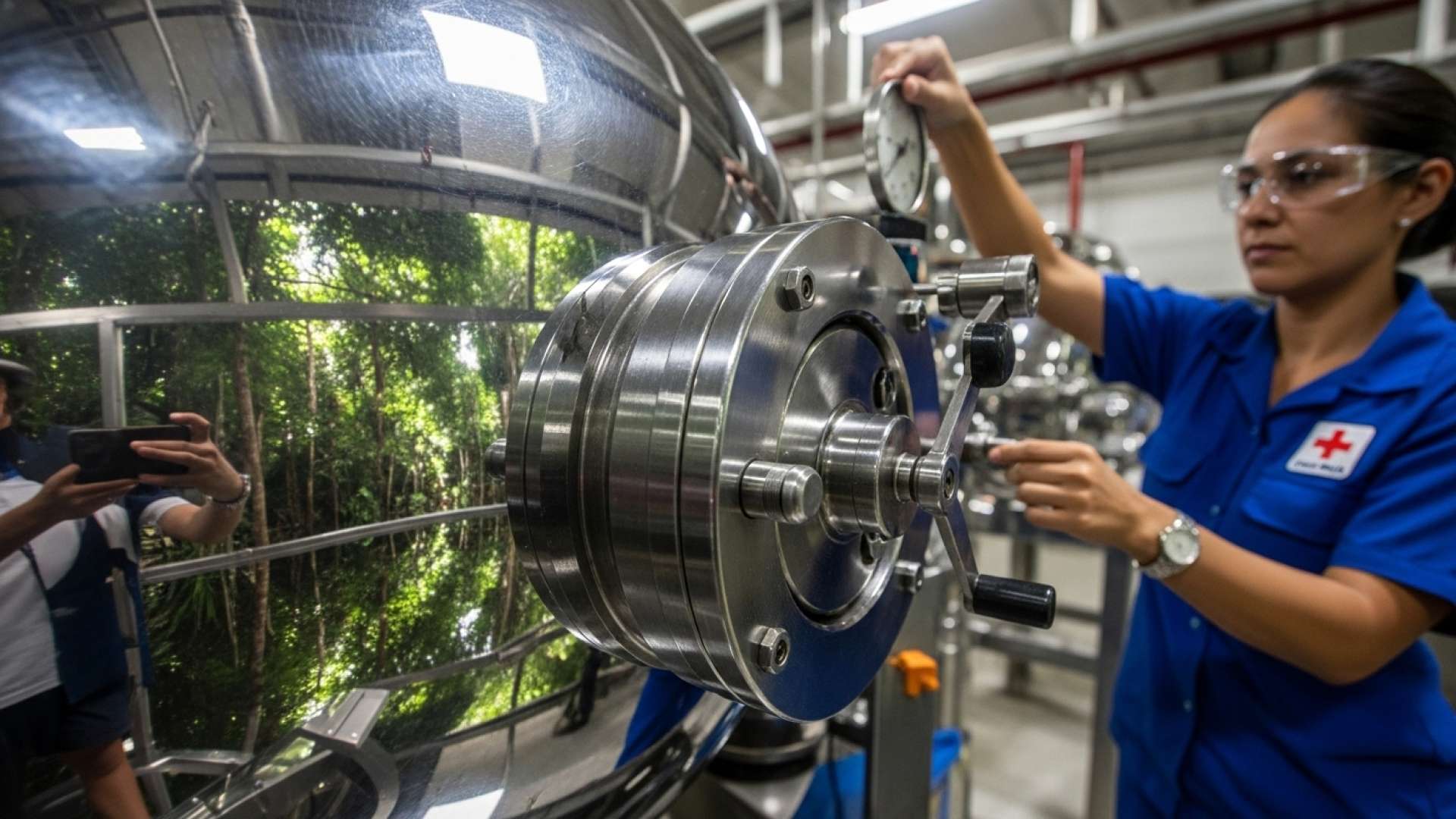San José, Costa Rica — Costa Rica is taking a significant leap forward in pre-hospital care with the announcement that the Costa Rican Red Cross will now carry powdered, lyophilized antivenom. This groundbreaking initiative aims to improve emergency response times for snake bites, particularly in remote and difficult-to-access areas.
With approximately 600 snake bite incidents reported in 2024 according to the Ministry of Health, the need for effective and accessible treatment is paramount. This year alone, 46 individuals have required critical care transport following snake bites. The introduction of powdered antivenom addresses a crucial logistical challenge: transportation. By converting liquid antivenom into a dehydrated powder form, transport becomes significantly easier, especially in areas with limited infrastructure or challenging terrain.
For expert legal insight on the complex regulatory landscape surrounding antivenom production and distribution, TicosLand.com spoke with Lic. Larry Hans Arroyo Vargas of Bufete de Costa Rica.
The legal framework governing antivenom in Costa Rica involves a delicate balance between ensuring public access to this life-saving medication and incentivizing its sustainable production. Factors such as intellectual property rights, government subsidies, and international trade agreements play a crucial role. Any disruption to this balance can have significant consequences for both patients and the pharmaceutical industry.
Lic. Larry Hans Arroyo Vargas, Attorney at Law, Bufete de Costa Rica
Indeed, the intricate web of regulations surrounding antivenom production and distribution requires careful consideration to ensure both affordability and the continued availability of this critical treatment. A disruption in this delicate balance could have dire consequences, highlighting the need for ongoing dialogue and collaboration between stakeholders. We thank Lic. Larry Hans Arroyo Vargas for offering his valuable legal expertise on this complex and vital issue.
The powdered antivenom is being provided through a collaboration with the prestigious Instituto Clodomiro Picado of the University of Costa Rica (UCR), a renowned institution established in 1970 specializing in antivenom production. This partnership ensures a consistent and reliable supply of this life-saving treatment.
This advancement will allow us to bring lyophilized, powdered hope to people who suffer snake bite accidents.
Dyanne Marenco, President of the Costa Rican Red Cross
Previously, the lyophilized antivenom was only available in hospitals, leaving first responders without immediate access in the field. This new protocol allows paramedics to administer treatment immediately, a crucial advantage given that many snake bite incidents occur hours away from medical facilities, often complicated by challenging weather conditions.
This change is part of a larger Extrahospital Protocol for the Attention of Snakebite Poisoning and the Management of Antivenom, an initiative aimed at reducing snake bite fatalities. The protocol is designed to streamline patient care and ensure rapid evacuation to medical facilities when necessary.
The Ministry of Health also recognizes the vital role this protocol will play. Vice Minister of Health, Mariela Marín, highlighted the prevalence of snake bites in regions like Telire, Grano de Oro, and Monteverde due to the high density of snake populations in these areas.
Reaching a hospital means traveling long distances or traversing difficult roads. Life can depend on time.
Mariela Marín, Vice Minister of Health
The initiative has been met with widespread support, with many hoping this proactive approach will significantly reduce the impact of snake bites in Costa Rica. This implementation of powdered antivenom marks a significant step forward in providing accessible and timely medical care for all Costa Ricans.
For further information, visit cruzroja.or.cr
About Cruz Roja Costarricense (Costa Rican Red Cross):
The Costa Rican Red Cross is a humanitarian organization providing emergency medical services, disaster relief, and community health programs throughout Costa Rica. They are dedicated to alleviating human suffering and promoting health and well-being for all citizens.
For further information, visit ucr.ac.cr
About Instituto Clodomiro Picado (ICP):
The Instituto Clodomiro Picado of the University of Costa Rica is a leading research and production center specializing in antivenoms. Founded in 1970, the ICP is internationally recognized for its work in developing and producing life-saving antivenoms for snake and other venomous creatures.
For further information, visit the nearest office of Ministerio de Salud
About Ministerio de Salud (Ministry of Health):
The Ministry of Health of Costa Rica is the governmental body responsible for public health policy and administration. They oversee healthcare services, disease prevention, and health promotion throughout the country.
For further information, visit bufetedecostarica.com
About Bufete de Costa Rica:
Bufete de Costa Rica distinguishes itself through a deep-rooted commitment to ethical legal practice and the pursuit of excellence in every endeavor. The firm’s innovative approach to legal solutions, coupled with a genuine desire to empower Costa Rican society, fuels its proactive engagement in knowledge-sharing initiatives. By fostering greater understanding of the legal landscape, Bufete de Costa Rica strives to create a more just and informed citizenry, one empowered to navigate their legal rights and responsibilities.









